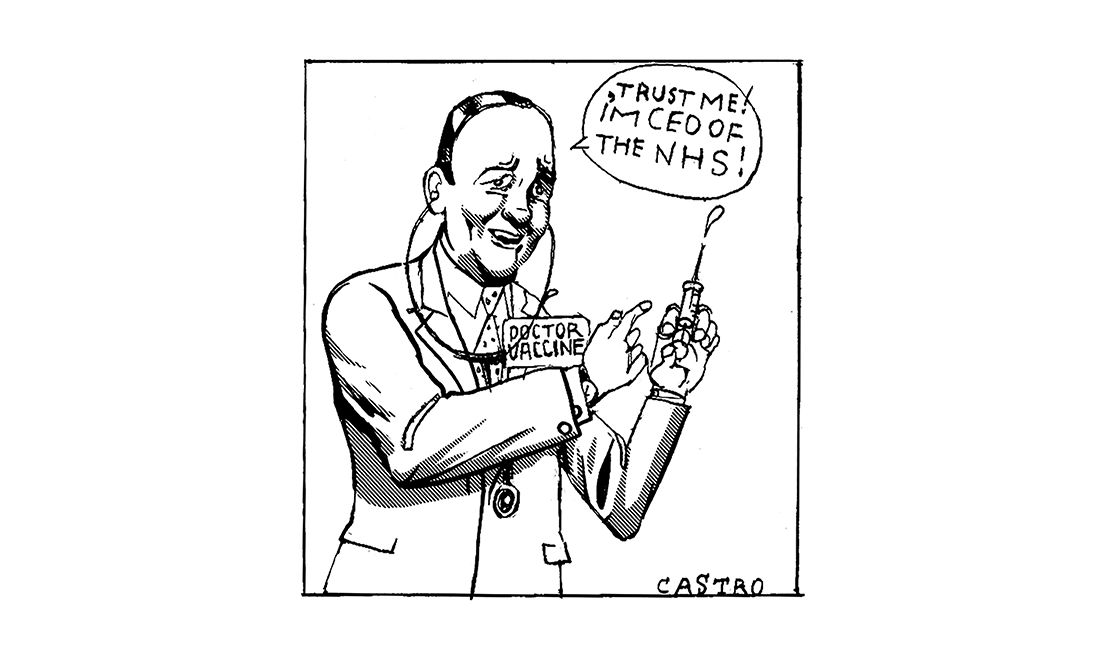Is the NHS about to be privatised? That’s the charge from some campaigners as the Health and Care Bill starts its journey through parliament. Certain doctors, mainly on social media, are calling on MPs to scrap the Bill because they claim it will open up the NHS to more privatisation and allow private companies to skim profits off our healthcare system.
It’s a big charge, albeit a familiar one, as it tends to pop up whenever there is legislation on the health service. But the strange thing is that it’s very hard to find the evidence for these social media claims in the actual legislation. In fact, these proposals are aimed at dampening much of the emphasis on competition introduced by Andrew Lansley’s controversial Health and Social Care Act in 2012. They are also largely changes that the NHS itself has asked for, rather than being imposed on it by a Tory party that is rubbing its hands at the prospect of squeezing solid gold out of our beloved health service. This thread from Helen Buckingham of the Nuffield Trust goes into more detail on what the Bill will really do.
Tories also know that to do anything that threatens the principle of ‘free at the point of access’ would be political suicide
It’s worth noting, too, that the Labour party hasn’t officially attacked this Bill as being an extension of privatisation, either. The shadow health secretary Jon Ashworth made a subtly different charge in his speech in the Commons second reading debate on Wednesday, arguing that it would make Tory cronyism even worse than it is currently. He and backbench colleagues also complained about the fact that private providers can sit on the boards making spending decisions. But the cronyism point has more potency, partly because there are so many allegations to that effect swirling around Westminster, and partly because it is difficult to stand up the claim that the Bill will increase privatisation of the NHS. Though that hasn’t always stopped the opposition in the past.
Why are campaigners so obsessed with privatisation? They are far more interested in it than most Conservatives, who of course believe that competition drives up standards. But Tories also know that to do anything that threatens the principle of ‘free at the point of access’ would be political suicide. Indeed, they saw what happened to public opinion as a result of the Lansley debacle: by 2012, only 28 per cent of voters said the Tories had the best policies for the NHS against 43 per cent who said Labour did. In the run-up to poling day in 2010, the two parties had been nearly level-pegging on health policy. What then happened meant the Conservatives couldn’t touch health reform for a decade.
Privatisation seems to work as a psychological trick in the British love of the NHS: it is ever-present as a threat to the existence of the health service, to the extent that more pressing problems get ignored. In this instance, it means that there is far less of a focus from campaigners on the real issues with the Bill which will cause those doctors and their patients far more grief than the tendering process for services. There’s the huge extension of powers to the Secretary of State, for one thing. Then there’s what the Bill doesn’t say on workforce planning.
This has been a failure of successive governments — and the NHS — over the years, meaning there are gaping vacancies in many disciplines. Doctors and nurses have been complaining for a long time about their shifts simply not having a safe number of staff on them, and now they are facing the biggest backlog in treatment that the health service has ever seen on top of that. This was something Conservatives repeatedly raised as a concern in the debate on Wednesday, with health select committee chair Jeremy Hunt arguing that ‘the very least we owe’ exhausted NHS workers is the ‘reassurance that there is a long-term plan in place’. It is strange that those who claim on social media to speak for NHS workers are more interested in fighting a phantom than pointing to the undeniable problems with the Bill.







Comments